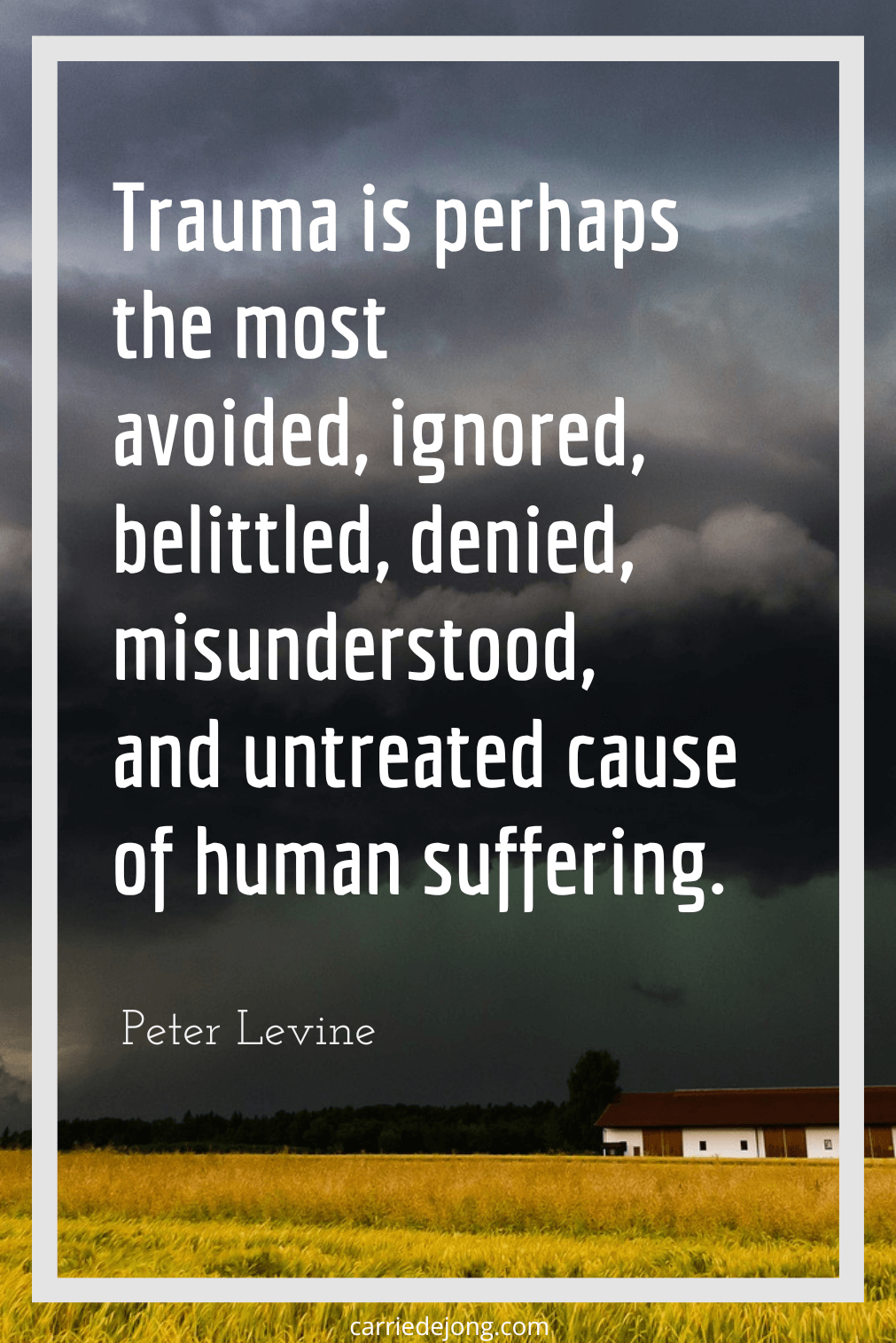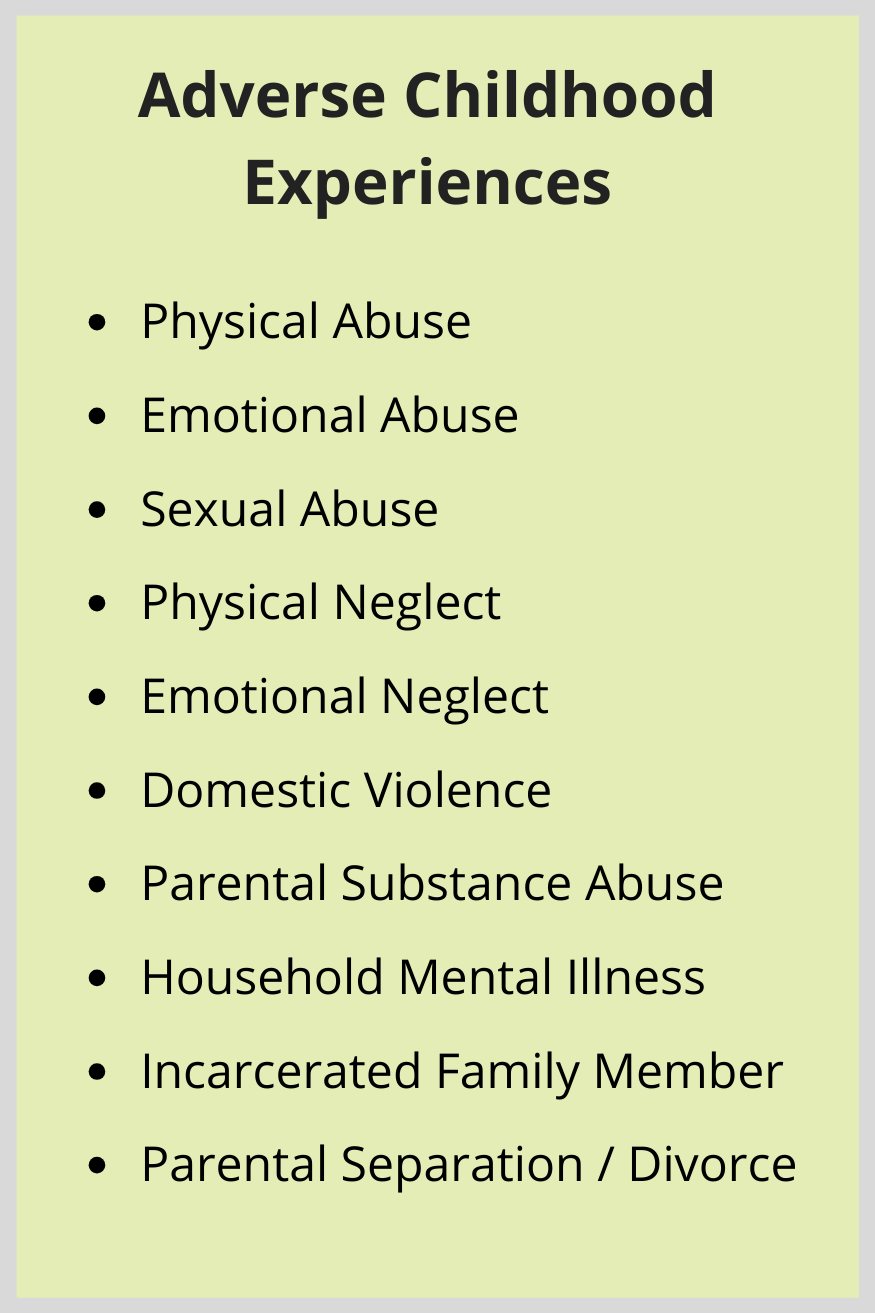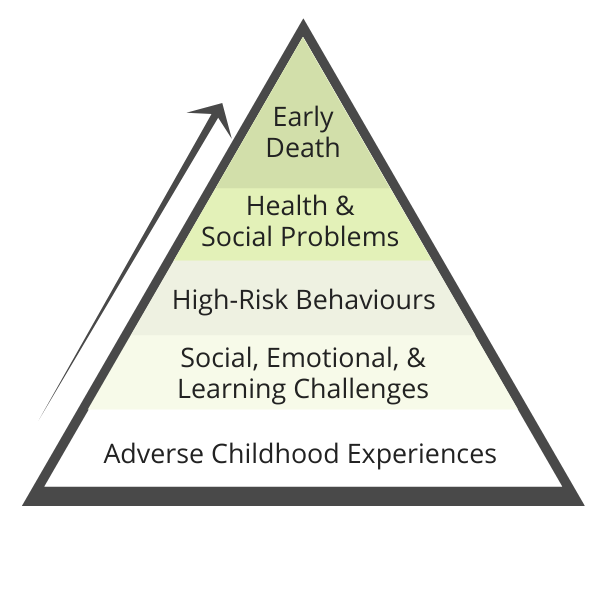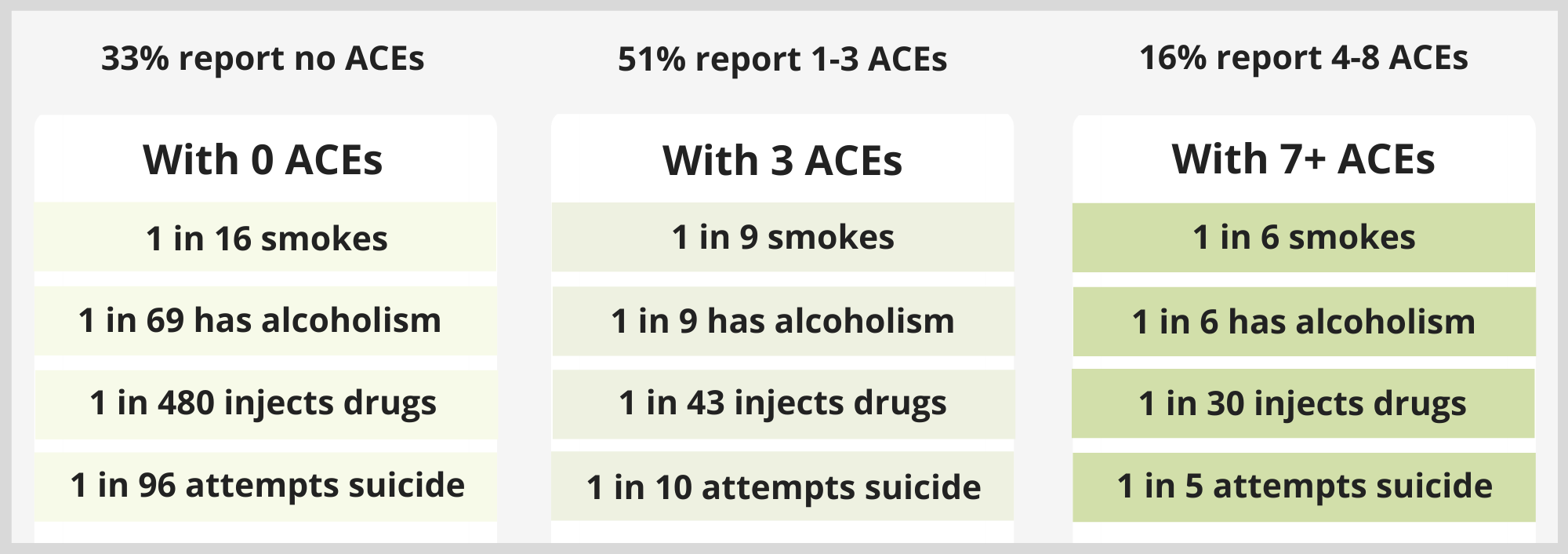Adverse Childhood Experiences And Addiction
“Trauma is perhaps the most avoided, ignored, belittled, denied,
misunderstood, and untreated cause of human suffering.”
Peter Levine
Suppose you're trying to understand the baffling behaviours of addiction. In that case, it's essential to know why mood-altering with substances and behaviours often begin in the first place. When talking about addiction disorders, it helps to know that "the problem is the problem." And addiction isn't the problem – it often starts as a symptom. If we can look at addiction this way, it allows for curiosity about what drives the need to mood-alter.
Substance use most often starts as a way to “fix” a problem.
Among researchers and mental health professions, there is a growing awareness that trauma is pervasive, especially in the lives of those struggling with addiction. There is also a greater understanding of trauma's profound impacts on physical, emotional, and mental wellbeing.
Many people will assume (wrongly) that the term “trauma” does not fit their experience. They may see the painful life events they have experienced as just a part of their life they wish to forget about and move on from. Most people struggling with addiction seem quick to discount their experience – “that wasn’t trauma”, “that’s just the way it was”, or “other people have had it far worse”.
“When it comes to trauma, what we don't know can hurt us. Not knowing we are traumatized doesn't prevent us from having problems caused by it.” Peter Levine
Research about the causes of addiction points to the significant contributions of early life experiences and the impacts of chronic stress and trauma.
Trauma and Its Connection to Addiction
We've become more aware of how common trauma is in people's everyday lives in recent years. We have come to understand that it includes a broad range of what we have considered "normal experiences". We have also learned how prevalent trauma is and the negative impacts on both individuals and society as a whole.
Research shows that traumatic experiences, particularly early in life, create a higher risk of developing substance misuse and addiction problems.
When we talk about the various types of trauma, it is vitally important to look at traumatic experiences that happen in childhood. Trauma expert Bessel van der Kolk makes a bold statement that trauma has its most pervasive impact during the first decade of life. He and other experts agree that adverse childhood experiences are vastly more common than most of us are comfortable acknowledging.
Adverse Childhood Experiences (ACE) Study
In the 1990s, Dr. Vincent Felitti and Dr. Robert Anda spearheaded a ground-breaking study of over 17000 participants to identify the association between adverse childhood experiences and health or social problems experienced as an adult.
This study is known as the Adverse Childhood Experiences Study (ACE Study). The researchers began by identifying ten specific categories of common childhood trauma. This list included physical, emotional, and sexual abuse, physical and emotional neglect, and family challenges, including parental separation, addiction, mental illness, violence, or incarceration.
Next, adult participants were asked how often they experienced these types of trauma in their childhood. Lastly, participants were asked to identify the physical and mental health concerns they experienced as adults.
The information they gathered from this extensive survey provides us with a clear picture of the negative impacts of childhood trauma.
This study demonstrates that adverse childhood experiences are vastly more common than previously thought. It also showed these adverse experiences have a powerful and cumulative negative impact on adult health. Much higher rates of depression, substance use, obesity, cigarette smoking, and suicide attempts were reported by participants who experienced more of these traumatic childhood experiences.
The ACE Study identifies the progression that creates health and social problems for adults who have experienced childhood trauma: a child suffers one or more adverse childhood experiences (ACEs), setting them up for more emotional, social, or learning challenges. As a result, they adopt unhealthy and high-risk behaviours to cope (including substance use), which leads to social problems, health issues, disabilities, and early death.
Although the statistics from the ACE Study indicate that 33% of all participants reported no adverse childhood experiences, there are some staggering stats to consider:
51% reported experiencing 1 – 3 categories of ACEs.
16% reported experiencing 4 – 8 categories of ACEs.
The association between the number of ACEs and later substance misuse show some very significant correlations. For people who had experienced 4 or more ACEs when compared to someone with an ACE score of 0:
They are twice as likely to be smokers.
They are 7 times more likely to experience alcohol use disorder.
And 10 times more likely to have injected street drugs.
The highest risk of alcohol problems (30.7%) was reported by those who experienced 4 or more ACEs and a history of parental alcoholism.
Here are more statistics:
In a functioning and healthy family, a child grows up in an environment that provides emotional security and a sense of physical safety and wellbeing. In addition, a healthy family teaches physical and emotional health in ways that allow a child to develop their skills at healthily maintaining their lives. When a child has good parental role models, they tend to be more equipped to adopt the coping tools and life skills modelled in their family.
Children in unhealthy families also adopt the patterns they are exposed to.
Parents may be less involved or are distracted by personal issues or stressors. Children who grow up in homes with parental addiction are often at higher risk of exposure to more adverse experiences. The ACE Study reveals that growing up with both parents misusing or addicted to alcohol puts children at higher risk of experiencing other categories of ACEs. This increased risk of exposure to additional trauma increases because the parents are unable to attend fully to their child's needs due to their substance use.
The Problem is the Problem
When you or someone you love struggles with substance misuse or an addiction disorder, it's essential to explore the contribution that childhood trauma or ACEs might be making.
The problem is the problem – traumatic experiences in childhood might be the problem that your substance use is trying to “fix”.
Vincent Felitti made a crucial observation about the connection between adverse childhood experiences and addiction. He stated that addiction is a readily understandable attempt to relieve prior life traumas. He also made this brilliant comment:
“Because it is difficult to get enough of something that doesn’t quite work, the attempt is ultimately unsuccessful.” (The Origins of Addiction, 2004)
It’s this painful reality that moves people towards substance use and addiction disorders - but there is help available. Seeking support from a therapist trained in working with trauma and addiction can help you unravel the impact of adverse childhood experiences. They can also help you develop healthier coping skills so substance use doesn't remain a way to cope.
Check out Recovery Happens
Carrie DeJong’s informative course that provides insight into the connection between trauma and addiction. It also explores pathways for healing and recovery.






